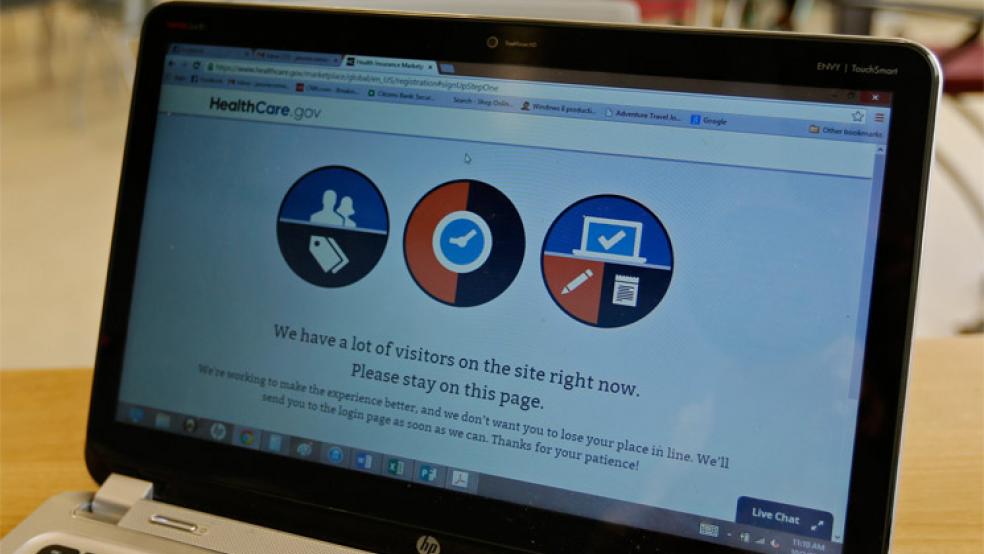A federal appeals court panel in the District struck down a major part of the 2010 health-care law Tuesday, ruling that the tax subsidies that are central to the program may not be provided in at least half of the states.
The ruling, if upheld, could potentially be more damaging to the law than last month’s Supreme Court decision on contraceptives. The three-judge panel of the D.C. Circuit Court of Appeals sided with plaintiffs who argued that the language of the law barred the government from giving subsidies to people in states that chose not to set up their own insurance marketplaces. Twenty-seven states, most with Republican leaders who oppose the law, decided against setting up marketplaces, and another nine states partially opted out.
Related: Court Challenges to Subsidies Threaten Obamacare
The government could request an “en banc” hearing, putting the case before the entire appeals court, and the question ultimately may end up at the Supreme Court. But if subsidies for half the states are barred, it represents a potentially crippling blow to the health-care law, which relies on the subsidies to make insurance affordable for millions of low- and middle-income Americans.
The subsidies are in many cases sizeable, sharply reducing the cost of coverage. In Wyoming, for example, the average consumer who bought a mid-grade plan on the federal marketplace is receiving a subsidy of around $444 per month, cutting the monthly payments to $99, according to federal figures.
Starting this year, it is mandatory to carry health insurance or pay a fine. California and Florida lead the way for state and federal healthcare sign-up markets.
About 5.4 million people signed up for health insurance on the federal marketplace through the spring, the government says. Of them, about 87 percent received subsidies.
The plaintiffs in the lawsuit — three private employers and four individual taxpayers — argued that Congress intended for the subsidies to go to people in states that set up their own insurance exchanges. They cited language in the law that said the subsidies would be available to those “enrolled through an Exchange established by the State.”
Lower courts, however, have sided with the government, which has argued that Congress’s intent was for subsidies to be available in all states — a meaning it said is obvious from the law’s context.
This article originally appeared in The Washington Post.
Read more at The Washington Post:
The Eye-Rolling Russian Rebel at the Heart of the MH17 Investigation
Burying Those Killed by Israeli Airstrikes in Gaza
Hard Test of the Economy: When to Have a Baby


